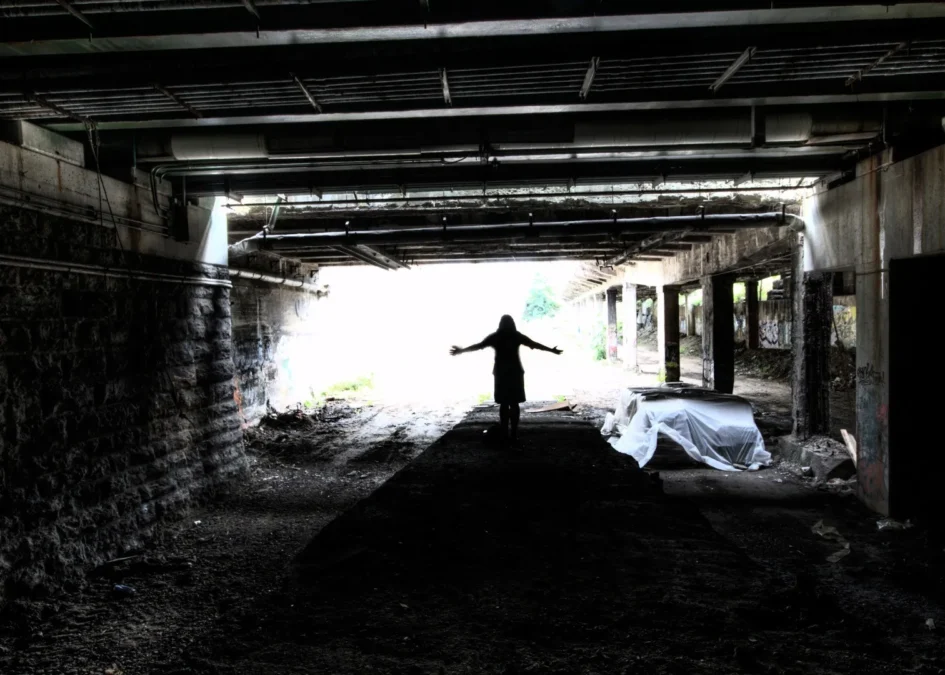Values are central; they go to the very core of us, to our personal identity. Our principles are perhaps the most important things as, whether or not we live out our dream or achieve our mission, they are most likely to remain intact. Values are a foundation and a plumb line as well as a moral compass.
“We are not in control, principles control. We control our actions, but the consequences that flow from these actions are controlled by Principles.” Stephen R. Covey
Our decisions and actions flow from our principles and in this way our values help to define us; they are part of our identity. Our exploration and discovery of our principles is therefore a discovery of self. As one anonymous observer noted: “Every one of us has in him a continent of undiscovered character. Blessed is he who acts the Columbus to his own soul.”
Free Personal Leadership Action Plan
Just sign up here to receive your free copy
So what do we know about our own identity? What do we value in ourselves and others?
Think about the first two questions you are generally asked when you meet someone. If you are from the UK, the US or a large part of the world it is likely to be “what is your name?” (usually meaning your first name) quickly followed by “what do you do?”
What are people really asking when they enquire about what you do? They are asking about your job, profession or vocation for sure. But the fact that this comes out so quickly when we meet people indicates how highly we rate work in our culture and how closely we identify ourselves with what we do. When people ask what you do they are actually asking who you are. They are hoping for an answer that will help them quickly categorise you.
What do you do?
I went along with this for many years because, for a long time, it was easy. I started out as an Army Officer working as a bomb disposal expert. This was an easy title, and one I enjoyed using, as it sounded impressive. I enjoyed seeing the raised eyebrows and the endearing look of respect (that I so little deserved in reality). Next, I was a Project Manager, working in the construction industry. Again an easy label, although I must admit it sounded less impressive at parties than something with ‘Bomb’ in the title. But hey, I was married by then so who was I trying to impress anyway? Well everyone actually!
The real challenge came with my next job, working for a rapidly growing church. My job description was constantly evolving and therefore it was hard to describe exactly what I did, especially as I was not actually a church minister. I found that introducing myself generally required a long explanation. The process of outlining what I did was just long enough to watch people’s eyes glaze over, stare down their drinks or look furtively towards the exit.
When I moved on again and started working as a management consultant it was not really any easier, as the title ‘consultant’ invokes so many different things. You may be motivated by helping individuals and equipping organisations, but one has a lot of justification to do when people look at you with an expression that seems to imply ‘consultant’ is synonymous with ‘parasite’!
Training dolphins to be government assassins
And then, at one networking event, I had a moment of clarity. I started introducing myself in this way: “Hi, I’m Simon, I train dolphins to be government assassins.” Once again I had attained the level of eyebrow movement that I have attained as a bomb disposal officer (but I guess more out of surprise than respect). Life was easy once again (for a moment at least) but it did make me think. Why do people, including me, care so much about titles? Why would I be prepared to embellish or even make up something about what I do? What does it say about me? The answers to these questions are pretty challenging.
Are we just what we do?
If asked about your identity, like me, you may not initially answer beyond your name and job but of course, there is much more to us than that. One way we can discover something more about our identity is by what we think when we look at other people. As we walk down a street, enter a room or sit staring out of a café window we are constantly assessing those around us. We compare looks, wealth, car, house, job, children, happiness, clothes, phone. In conversation, this process continues through things like accent, vocabulary, demeanour, politics, religion, aspirations and education.
Of course, much of what we first think is not real; we try to make a value judgement in a fleeting moment, judging the book by its cover. Not surprisingly this process actually tells us more about us than about the other person, because how we classify others speaks volumes about how we perceive ourselves. If we are putting someone else in a certain box or on a certain level what does that say about our position? I for one did not think I had a pride problem until I thought about this!
Even this internal classification can be somewhat misleading. We all have roles that we play and we often wear masks that represent an aspirational self, the person we want to show to the world, rather than the real us. But even if this ideal self is not the true self we can learn more of ourselves. This is because even if we are aspiring to be something or someone else it once again reveals what we value.
Leadership Development: Master the Top Leadership and Life Skills
Better lead in life and work to maximise your success. Sign up and access materials for free!
What is your worldview? What are your beliefs?
Work, position, pension, benefits package and job title can be important to us. Our perception of our perfect partner, spouse and family can be the more presentable faces of simple base motivators. Money, sex and power have always been identified as strong drivers, even if they are hidden under more subtle layers of respectability. Our identity can also be wrapped up in more ethereal things. Our worldview, philosophy, faith or politics can define us because they affect the way we live.
None of these things needs to be necessarily good or bad in themselves, but for everything we prioritise we need to ask why we care about it so that we can understand it further and get under the skin of our thinking. We need to be aware of the things around which we construct our lives. We need to be certain of the foundation we are building upon.
Worth-ship
If we value something very highly we give it worth above other things or even ultimate worth. We build our lives around it. This prioritising, giving position, reverence or regard was called ‘worschipe’ in Middle English. Today its name is ‘worship’. In other words, even if you do not consider yourself religious we all give something religious value.
Here is some insight from the influential writer David Foster Wallace on the subject:
“Because here’s something else that’s weird but true: in the day-to-day trenches of adult life, there is actually no such thing as atheism. There is no such thing as not worshipping. Everybody worships. The only choice we get is what to worship.
And the compelling reason for maybe choosing some sort of god or spiritual-type thing to worship — be it JC or Allah, bet it YHWH or the Wiccan Mother Goddess, or the Four Noble Truths, or some inviolable set of ethical principles — is that pretty much anything else you worship will eat you alive.”
The Importance of knowing where your priorities and values lie
David Foster Wallace then goes on to illustrate the dangers we face:
“If you worship money and things, if they are where you tap real meaning in life, then you will never have enough, never feel you have enough. It’s the truth. Worship your body and beauty and sexual allure and you will always feel ugly. And when time and age start showing, you will die a million deaths before they finally grieve you. On one level, we all know this stuff already. It’s been codified as myths, proverbs, clichés, epigrams, parables; the skeleton of every great story. The whole trick is keeping the truth upfront in daily consciousness.
Worship power, you will end up feeling weak and afraid, and you will need ever more power over others to numb you to your own fear. Worship your intellect, being seen as smart, you will end up feeling stupid, a fraud, always on the verge of being found out. But the insidious thing about these forms of worship is not that they’re evil or sinful, it’s that they’re unconscious. They are default settings.
They’re the kind of worship you just gradually slip into, day after day, getting more and more selective about what you see and how you measure value without ever being fully aware that that’s what you’re doing.”
We may not believe in God but we all choose to give something ultimate worth and choose to build our lives around it. It is important that we know what that thing is and ask ourselves why we value it so highly.
Digging down to our principles
Self-exploration can be a scary journey but it is an essential one. We need to know about our principles because what happens when these things are challenged or even taken away? What are we left with? Are our values vulnerable? If they come under attack could everything else come tumbling down? We face long-term insecurity if our values are unreliable or temporal things, even if they are good things such as people or helpful things such as possessions.
So what are your values? How do they affect your identity? I would encourage you to take some time out to reflect seriously on these questions.
You can explore these questions and discover more about your own values by reading: What are your personal values?
“Men go abroad to wonder at the heights of mountains, at the huge waves of the sea, at the long courses of the rivers, at the vast compass of the ocean, at the circular motions of the stars, and they pass by themselves without wondering.” St. Augustine
What next?
You may want also want some help, delving deeper into your values and identifying your goals. I have the pleasure of seeing amazing, positive, transformations in the individuals and organisations I work with. If you would like some assistance too, in person or online, then please do drop me a line. You can email me via the contact page.




